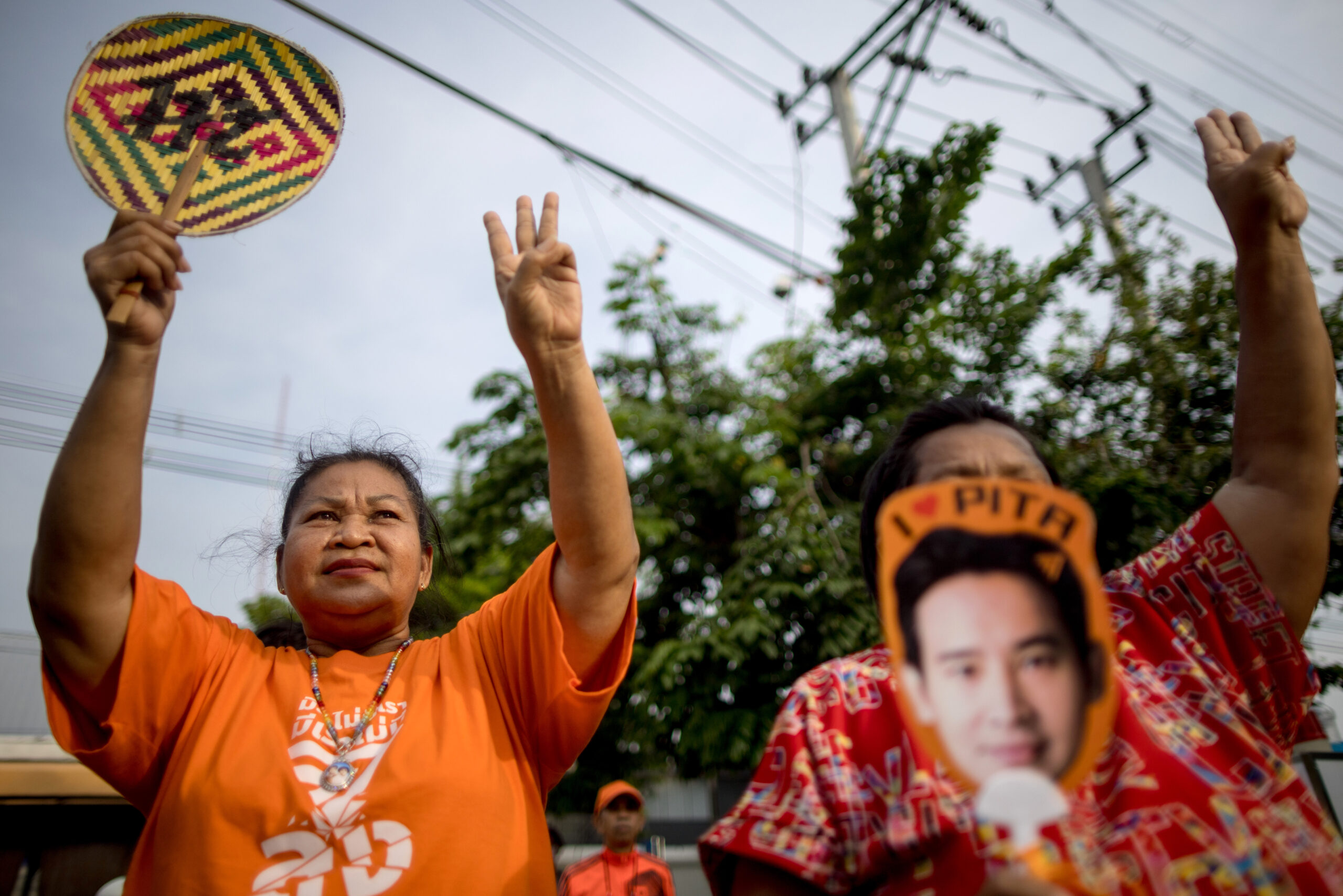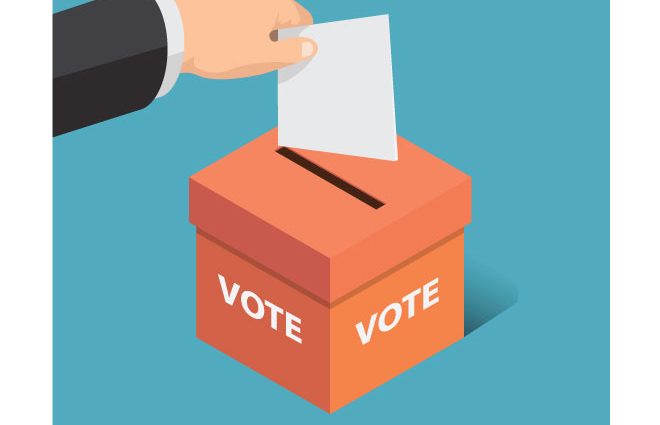Chonthicha “Lookkate” Jangrew, 30, grew up in a Thai military family, but that didn’t stop her from becoming a human rights activist – and most recently an elected representative for the opposition Move Forward Party (MFP).
In Thailand’s general elections on 14 May, Chonthicha stood for the first time as a candidate for the progressive, youth-driven party in the Pathum Thani constituency north of Bangkok.
As a constituency candidate, Chonthicha was voted in directly by the public of Pathum Thani, where she was raised. Throughout her childhood, most of her family – including her father – served in the Royal Thai Army.
“I grew up in an authoritarian home and that kind of pushed me closer to my fight for human rights and freedoms in my country,” she said.
Chonthicha said she was inspired to activism at the age of 18, when the military killings of about 100 anti-government Red Shirt protesters in 2010 struck her like a moral call to arms. By 2014, a few months before her university graduation, the Thai military seized power with a coup. For Chonthicha, it was time to fight back.
“I thought if I didn’t do anything at all for our people, we wouldn’t have any future for ourselves,” she said.

Soon after the coup, Chonthicha became an outspoken advocate for democracy in the years after the military takeover and a vocal opponent of Thailand’s controversial lèse-majesté law, which applies strict penalties for so-called royal defamation.
This won her plenty of enemies within the military-backed government, which pressed a series of speech-related criminal cases against her.
Most of these legal cases are still active, including two charges under the draconian lèse-majesté, which each carry a possible penalty of up to 15 years imprisonment. Although this gives Chonthicha lots of headaches, she hopes she’ll be spared prison in case of a guilty verdict, in order to continue her path as a member of parliament (MP) in her constituency.
Surpassing expectations, MFP won the biggest vote share of any party in the election, coming away with 113 constituency seats and 39 additional party-list seats in the House of Representatives.
While Thai citizens have just voted out the coup-makers in the formerly ruling Palang Pracharath Party, the country is now waiting to see if the winning party will be allowed to form a government. The Thai Election Commission will soon decide on the eligibility of MFP leader Pita Limjaroenrat to form a government after a member of the ruling party accused him of not declaring ownership of shares in a media company prior to the elections.
If the commission gives Pita the green light and the 250 unelected members of the Senate – all appointed by the military junta in 2014 – vote in his favour, MFP can begin forming a new government. That would allow Chonthicha to represent her constituency in parliament.
She spoke more about her journey with Southeast Asia Globe.

What inspired you to join politics?
I honestly never thought of becoming an MP. I had never really wanted to be a politician because I didn’t want to be in the spotlight. I really wanted to keep my own privacy and be quiet.
Over the past nine years, I’ve launched lots of campaigns for constitutional amendments, calling for new elections and the repealing of the lèse-majesté law, known as royal defamation. I also participated in the 2020 youth democracy movement and worked with international organisations and institutions, including embassies, NGOs, and human rights committees to advocate for human rights.
When they announced that this year we would have elections, I decided to run as an MP in my constituency. But being an MP is not the goal of my life, it is just a channel, a tool, for me to make an actual change in Thailand.
What does it mean to be a democracy activist and a member of the opposition in Thailand?
Even if I am an MP now, I still see myself as a human rights defender. But I have to say, being in politics is not easy at all. If you are a young woman, people don’t really trust you, they often say: “This is no work for women.”
But what concerns me the most now is the court verdict on my two lèse-majesté charges, for which I risk spending more than 20 years in jail. Since 2014, when I started my fight for human rights, I have been accused of 28 cases, including two under [lèse-majesté], and several others of sedition, violation of the emergency decree and public assembly.
Most of them are still active, except for two cases on violation of public assembly and the emergency decree where the verdict was in my favour. But I will have a final verdict on the lèse-majesté case in the next four months. If they declare me guilty, I hope they’ll give me the right to bail.
How did your family react when you decided to become an activist and, later, join the MFP?
In the beginning, my family didn’t like the idea of me being a human rights activist and me fighting the coup. So it was just me then, but I knew that this was something I couldn’t just ignore. It was my future, and I had to do something about that. If we don’t try, there’s no chance to change our future. if you don’t try, you never know. That convinced my parents in the end, and now they support me in my path. They also supported me when I decided to join the MFP and join politics.
The victory of MFP in this latest election came to some as a surprise and to some others as an inevitable result. What do you think about it? And what was the political climate in the run-up to the elections?
The result of this election surprised me a lot, but it also showed us that people are ready for change. Now we just need some key politicians and people in power to get on board.
During the campaign, I had the chance to talk to the people in my district. What surprised me the most is that people are getting more and more interested in politics. They realised that we can’t change the economy of our country without looking into its political stability and strength. We need to look both ways. We can’t fight the economic crisis as long as we still have the coup-makers in power.
I saw that the ruling party has submitted a case to the election commission about Pita’s eligibility to run in the elections over the iTV shareholding issue. What’s your take on this review of Pita’s eligibility?
We know that lots of people in power will try everything against us. They want to take people like me and Pita down. They don’t want human rights defenders in power. This makes them really scared of us. Pita is completely eligible, and he will win the case. I believe we will be able to form a government.
I understood that the party is looking at strengthening the approach to foreign policy in many ways. Can you tell me more about this? And what sort of political change do you think Thailand is ready for?
Now it’s about time that we can use a human rights approach to lead this country. That will also be our objective when drafting new policies on investments and the royal budget.
We need to realise that things like the recent murder of a Lao refugee in Thailand and the past abduction and killing of a Thai political refugee can’t happen again. These are the kinds of things we need to change. Also, the Myanmar situation, we need to support refugees – we need to have a strong policy to protect them. The country and the region can gather strength to push Myanmar to restore democracy.
People started asking about the issue of royal defamation and for a reduction of the royal budget. They are alert about this topic. We can hope to change these things when we are in power.
What are some challenges and hopes ahead for you and the MFP?
During the campaign, I spoke to many children, and I was very pleased to see that they already started to be interested in politics at 12 or 13 years old. They mostly told me that they supported the MFP because of its progressive views and they want to have a future where they can be free to talk about what they want while being safe. This is our hope and goal for the future. We will work for the people’s benefit. Parliament should be a safe space to discuss anything. We should be able to bring to parliament issues that people demand us to discuss.
The biggest challenge now is that those who are now in power will do anything to stop us and take us down.


